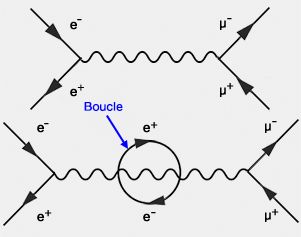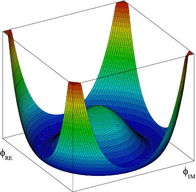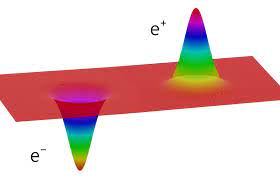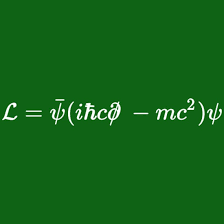Théorie des Champs Quantique II
Section outline
-
University: Djilali Bounaama Khemis Miliana
Faculty: Science of Matter and Computer Science
Department: physics
Speciality: theoretical physics
Level: Master 1
Module: Quantum Field Theory II
Semester: 2
Credit: 06
Unit: Fundamental.
Coefficient: 3.
Timetable: 1h30 min, 3 sessions per week (2 lectures and 1 TD)
Teacher responsible for the course: Dr. FERMOUS Rachid.
Grade: MCA
Assessment method:
The final assessment is carried out through:
- Assessment of tutorials: which represents 50% (12 points for presentations, 5 points for attendance and 3 points for participation).
- A table-top final exam: which accounts for 50% of the final mark,
and which covers everything you have seen in this course during the
semester.
To pass. -
To pass the module, you must have an overall average of at least 10 out of 20.
-
The description of particle systems with relativistic energies where the particle-like (quantum) nature prevails over the wave-like (classical) nature.
-
Quantum Field Theory I
-
1 Lagrange formulation of quantum filed theory ....3
1.1 Recall the formalism of Lagrange . . . . . . . . . . .3
1.1.1 Principle of least action . . . . . . . . . . 3
1.1.2 Euler-Lagrange equations . . . . . 4
1.1.3 Lagrangian choice . . . . . . . . . . 5
1.1.4 Hamiltonian formulation . . . . . 6
1.2 Basic principle of quantum field theory . . . . . . . . 6
1.2.1 Free scalar field . . . . . . . . . . . 7
1.2.2 Free complex scalar field . . . . . 8
1.2.3 Complex scalar field in the presence of an external electromagnetic field . . 8
1.2.4 Remark . . .9
2 Exercises 10
3 Symmetries and conservation laws 11
3.1 Example of transformation . . . . . . . . . 11
3.1.1 Space-time transformation . . . . . 11
3.1.2 Global phase. . . . 12
3.1.3 Local phase transformation. . . . 12
3.2 Noether’s theorem . . . . . . . 12
3.2.1 Statement . . . . . . . . . . . . . . . . . . . . 12
3.2.2 Demonstration . . . . 13
3.3 Energy-Momentum Tensor of the scalar field . . 18
4 Exercises 20
5 Dirac equation 21
5.1 Dirac’s Hamiltonian . . . . . . . . 21
5.2 The characteristics of Dirac matrices . . . . .22
5.3 Standard representation . . . . . . . . 25
5.4 Free Dirac equation . . . . . . . . . 26
5.5 Physical interpretation of the negatives energies . 28
5.6 Current of free Dirac equation . . . . . . . . . 29
5.6.1 vector current and total charge . . . . . . . . 31
5.7 Dirac equation in the presence of an external electromagnetic field . . . . . 31
5.8 Lagrangian of the complex spinor field . . . 32
5.9 Lagrangian of the complex spinor field in the presence of an external electromagnetic field. . . . . . 33
6 Exercises 35
7 Somme References 40
-
1. J. P. Derendinger, Théorie quantique des champs, Presses polytechnique et universitaires
romandes, 2001
2. S. Weinberg, Quantum theory of fields, 3 vols, Cambridge University Press, 1995,1996
3. J. J. Sakurai, Advanced quantum rnechanics, Addison-Wesley, 1967
4. J. D. Bjorken and S.D. Drell, Relativistic quantum fields, McGraw-Hill, 1965
5. F. Mandl et G.Shaw., Quantum field theory, Addison-Wesley, 1993
6. N. N. Bogoliubov, D. V. Shirkov, Introduction to the Theory of Quantized Fields (Interscience
Monographs in Physics and Astronomy), John Wiley & Sons, 1959
7. R. Balian, du microscopique au macroscopique, vol. 2. École polytechnique, ellipses, 1982





